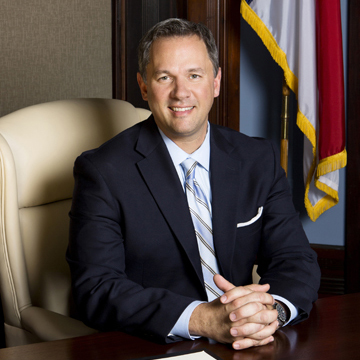The University of North Carolina at Greensboro bans “disrespect.” N.C. Central says students in its dorms must avoid saying or writing anything that “offends.” East Carolina prohibits “jokes about sex or sexual orientation.”
These student polices are known as speech codes, which the Foundation for Individual Rights in Education defines as any policy that “both clearly and substantially restricts freedom of speech.”
The rules flagrantly violate the First Amendment. When challenged in federal court, they are struck down with great gusto. FIRE’s nationwide Stand Up for Speech Litigation Project, which represents students punished for free expression, has yet to lose a case.
But speech codes remain ubiquitous at North Carolina’s public colleges and universities, staining student handbooks and keeping coeds clammed up, fearing disciplinary sanctions if they fail to toe the line.
Lt. Gov. Dan Forest has had enough. The Republican is working with legislative leaders to introduce the Campus Free Expression Act, which would protect speech, assembly, petition and protest rights at all UNC system campuses.
It’s a move that’s long overdue, and while the bill has yet to be drafted, we applaud the concept and commend Forest for taking the lead to safeguard student speech from overzealous administrators.
Political correctness has overtaken the modern American university. Student protests that began at the University of Missouri and spread to dozens of U.S. campuses don’t just call for diversity and equality in college employment policies, they demand that officials silence fellow students whose opinions are deemed offensive or controversial.
The phenomenon of “safe spaces,” designated zones where students are free not from physical harm, but from any dissent that may challenge their beliefs or hurt their feelings, is at odds with the very purpose of a university — a community of scholars who learn and grow in a vast marketplace of ideas.
Forest says the bill will slap down speech codes, dismantle “free speech zones” — which are used to corral speakers, picketers and pamphleteers into small corners of a campus — and reject the heckler’s veto, a tactic used to silence unpopular speakers by drowning them out.
Some professors and pundits fear the latter portion is actually aimed at restricting protest at public events and was motivated by student demonstrations at a UNC Board of Governors meeting after Margaret Spellings was chosen as chancellor in a secretive search and improperly conducted closed-session vote.
Any regulations on public protest must be narrowly written to ensure that demonstrators aren’t barred from attending such meetings and voicing their views. First Amendment case law already protects the right to protest, and it supersedes any state statute.
Despite its supremacy, the First Amendment is flouted on our state’s public college campuses because few students penalized for expression endure the time, effort and expense to challenge wrongful punishments in court.
Ripping up the speech codes by passing a statewide free-expression law would be a victory for open discourse in North Carolina.

